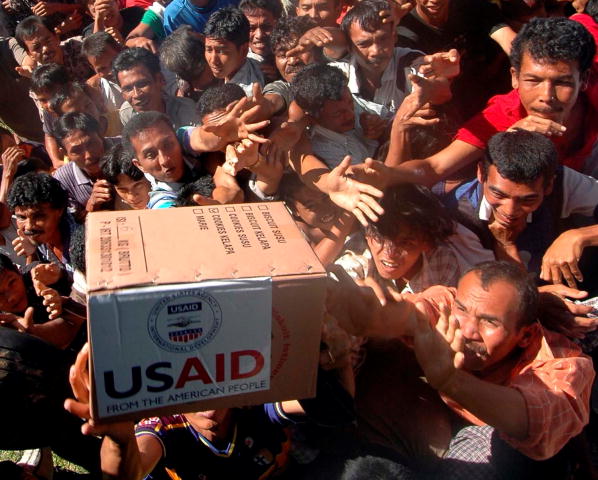By: Jessica Ties
Impunity Watch Reporter, Asia
PYONGYANG, North Korea – An NGO have expressed anger at the United States decision to suspend food aid to North Korea after it became known that North Korean planned a satellite launch said to violate an agreement between the two nations.

The agreement provided that the U.S. would deliver 240,000 tons of food over the next year if international inspectors were permitted to visit North Korean nuclear facilities and missile tests were suspended.
The U.S. claims that North Korea breached its agreement when it launched a satellite atop a rocket that believed to be capable of delivering a nuclear warhead because it “…reflects their lack of desire to follow through on their commitments….”
North Korea, however, maintains that the rocket is not a missile test and is instead a scientific weather satellite.
Despite the suspension of food aid, the U.S. State Department has continued to state that the aid does not depend on political concession but is instead an attempt by the U.S. to regain “confidence in the commitments” about promises by the North Korean government to monitor and distribute the food appropriately.
The state department has stated, “[w]e’re not going to send food to a country where it might be diverted to the elites…[So] there’s a link in the sense that we don’t have confidence in the good faith of the government…If they want to restore our confidence in their good faith, they can cancel the plans to launch this satellite.”
Samaritan’s Purse, a U.S. aid agency disagrees with the account of the State Department. The organization’s Vice President, Ken Isaacs, has stated that “there is evidently a strong linkage in the negotiations between the U.S. and North Korea-the linkage being an exchange for discontinuation of enriching uranium in swap for food…”
Isaacs continued to express that the people who would suffer as a result of the United States’ decision would be the individuals living in the rural areas who are already hungry and malnourished.
In February 2011, Samaritan’s Purse and four other NGO’s sent a food assessment to North Korea reporting that children in many parts of the country were suffering from severe acute malnutrition.
As a result, the organization determined that an intervention was necessary to save the lives of those at risk. The organization also determined through interviews with those who had received food aid that there has never been any direct information that food was being inappropriately diverted making the refusal to send the food aid unnecessary.
North Korea has relied on foreign food aid since the 1900’s when famine struck the country and marked the beginning of constant famine.
For more information, please see:
Radio Free Asia – ‘No Political Links’ to Food Aid – 29 March 2012
Reuters – U.S. Suspends Food Aid to North Korea Over Missile Plans – 29 March 2012
BBC – U.S. Confirms it has Suspended North Korea Food Aid Plans – 28 March 2012



